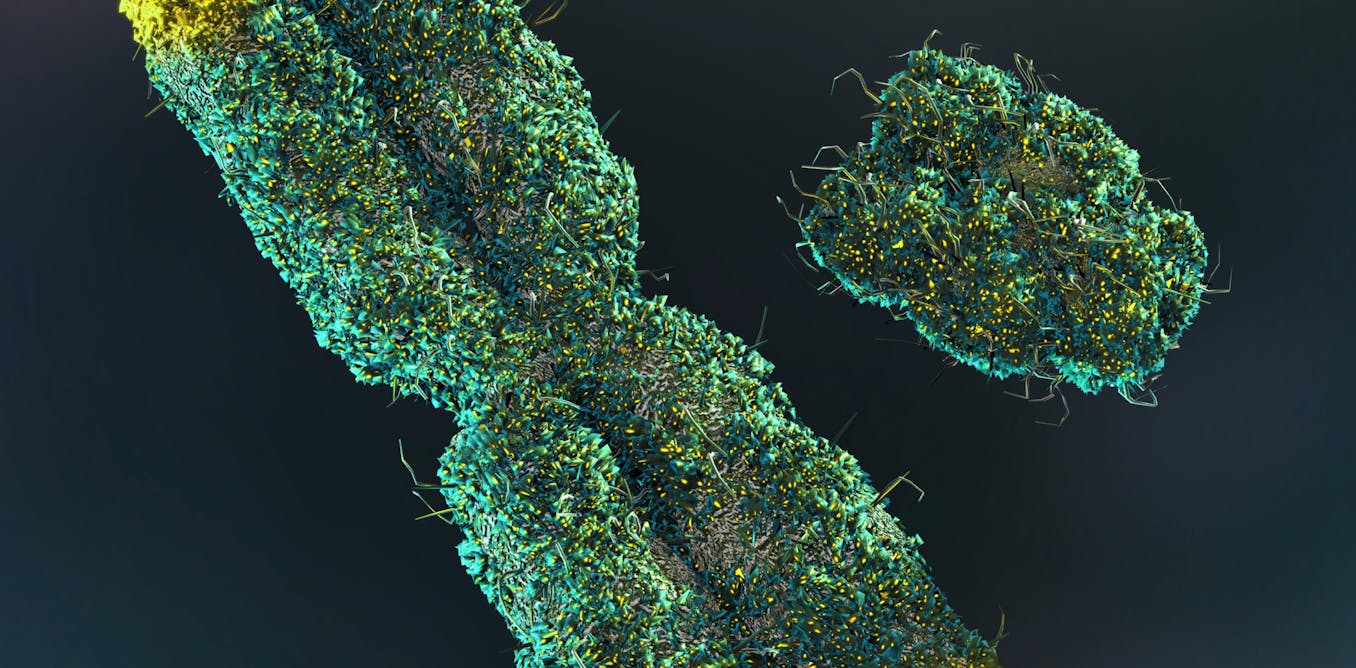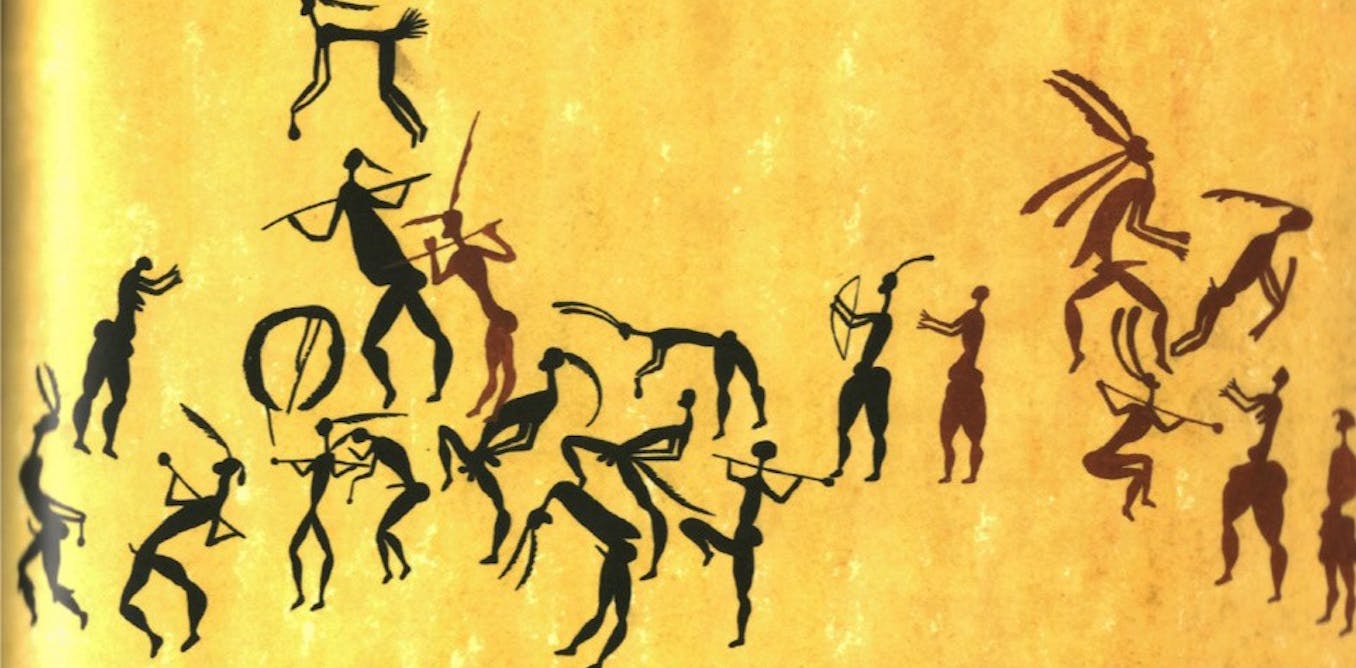As we inch closer to the possibility of making first contact with an alien civilization, it’s worth wondering how that contact would go. As much as we’d like “them” to be benign and respectful of other life forms, we might be in for a big surprise. Technical prowess and ethical enlightenment don’t necessarily go hand in hand — our own history reminds us of that. When resources are tight and survival is at stake, ethics quickly get thrown overboard.
Still, even though aliens are likely to be very different from us in many respects, they likely would have gone through biological evolution, as we did. That would have entrenched certain characteristics as they evolved to become intelligent and further advanced to the point of achieving interstellar travel.
Most of us never experience real starvation, but animals often do. Desperate starvation can even lead to cannibalism, which has been documented in more than 1,000 species, including Neanderthals and modern humans. Disturbingly, in certain societies, cannibalism has been used for ritual purposes, most famously in the Aztec empire.
If we can reach the point where we consider our own species as food, why wouldn’t extraterrestrials do the same? After all, one of our planet’s most attractive selling points is that it has a diverse biosphere. Perhaps aliens would consider us an exotic food source. We have no problem eating other intelligent and sentient beings, including dolphins and octopuses, so it should come as no surprise if aliens also lack such compunctions.
Extraterrestrial survival strategies
Any intelligent alien is likely to be a social predator or pack hunter. With few exceptions, we see this pattern on Earth. An antelope doesn’t have to be particularly smart, since its main survival strategy is to run away quickly the moment it spots a lion. The lion, though, has to be more intelligent. If it wants lunch, it needs to project into the future and anticipate the movements of the antelope. A wolf has to be even smarter. Not being as strong as a lone lion, it has to communicate with other wolves and anticipate their interactions during the hunt. This requirement for social cooperation would be even more critical for any species that aims to leave its home planet in spaceships.
We have many examples of intelligence on our own planet, including dolphins and whales, certain birds such as parrots and crows, great apes, and cephalopods like octopuses, cuttlefish, and squid. Perhaps the most interesting alien analog is the octopus. These invertebrate animals, related to snails and slugs, haven’t shared a common ancestor with humans for the last 600 million years, meaning their evolutionary history is very different from ours. Their anatomy alone seems alien — their neurons are mostly spread across eight arms rather than the brain. Lacking bones, they can squish through small crevices in rocks.
Octopuses are even known to be mischievous. Unlike rats, they don´t like to play along in intelligence tests designed by people. After staff members at the Vancouver aquarium noticed that other fish were missing from their tanks night after night, they put up cameras to resolve the mystery. An octopus in one of the tanks had been lifting the cover of its tank and going on nightly outings to dine on fish from the other tanks. After dinner, it neatly replaced the covers of both tanks so as to leave no trace.
Humans and octopuses can even forge a kind of friendship, as seen in the documentary My Octopus Teacher (though I hope the aliens would be better friends to us than the human in the film, who just stands by as his octopus friend gets ripped apart by a small shark). If the roles were reversed, and the octopus was much larger — size matters in the animal world — could it have gone the other way? Might the octopus even try to make a meal of its “friend”?
In contemplating whether we humans would be tasty to visiting aliens, we can only hope that we’re biochemically different enough from a species that evolved on another world. There’s a good chance “they” would find us poisonous, or at least unappealing enough to give them indigestion!
Or perhaps they are more altruistic than we are, taking care of wild animals in nature preserves. Nonhuman altruism has been observed in nature, the most famous example being dolphins who save humans from drowning even at some cost to themselves. These acts usually happen between somewhat related species, however, rather than, say, spiders and humans. Of course, we would have no relation to extraterrestrials at all.
So it’s an open question how exactly aliens would see us: Just another interstellar species to befriend in a large and wondrous Universe? Competition for resources? Zoo animals to be protected? Food? The lessons of biology allow for all of the above. Aliens may also be totally uninterested in our ethical concerns, especially if they believe they are further evolved than we are. Male lions taking over a new pride kill the cubs of their predecessors. On Earth, nature seems to care less about individuals and more about the survival of the species. Aliens may have taken that lesson to heart (if they have hearts).
Finally, even if the extraterrestrials have the most benign intentions, a misunderstanding could still lead to disaster. Direct contact with an alien civilization would put our own human society to the test, with some welcoming the newcomers and others feeling threatened. Tensions could easily escalate into open conflict, and in such an unpredictable scenario, the aliens might act in a way that gives them the highest chance of survival. Wouldn’t we do the same? Our best hope, then, is that aliens have developed empathy for other species and that they don’t treat us the way we treat chickens and pigs in the food industry. In an unforgettable two-part episode of Star Trek: The Next Generation (“All Good Things”), humanity is put on trial over whether it has successfully evolved beyond its savage past. We can’t honestly say we’ve reached that point yet. Have the aliens? Let’s hope we have the answer before their spaceship door opens on the day of first contact.
This article If aliens visit Earth, let’s hope they’ve overcome their savage past is featured on Big Think.

The post “If aliens visit Earth, let’s hope they’ve overcome their savage past” by Dirk Schulze-Makuch was published on 10/31/2024 by bigthink.com






































Leave a Reply